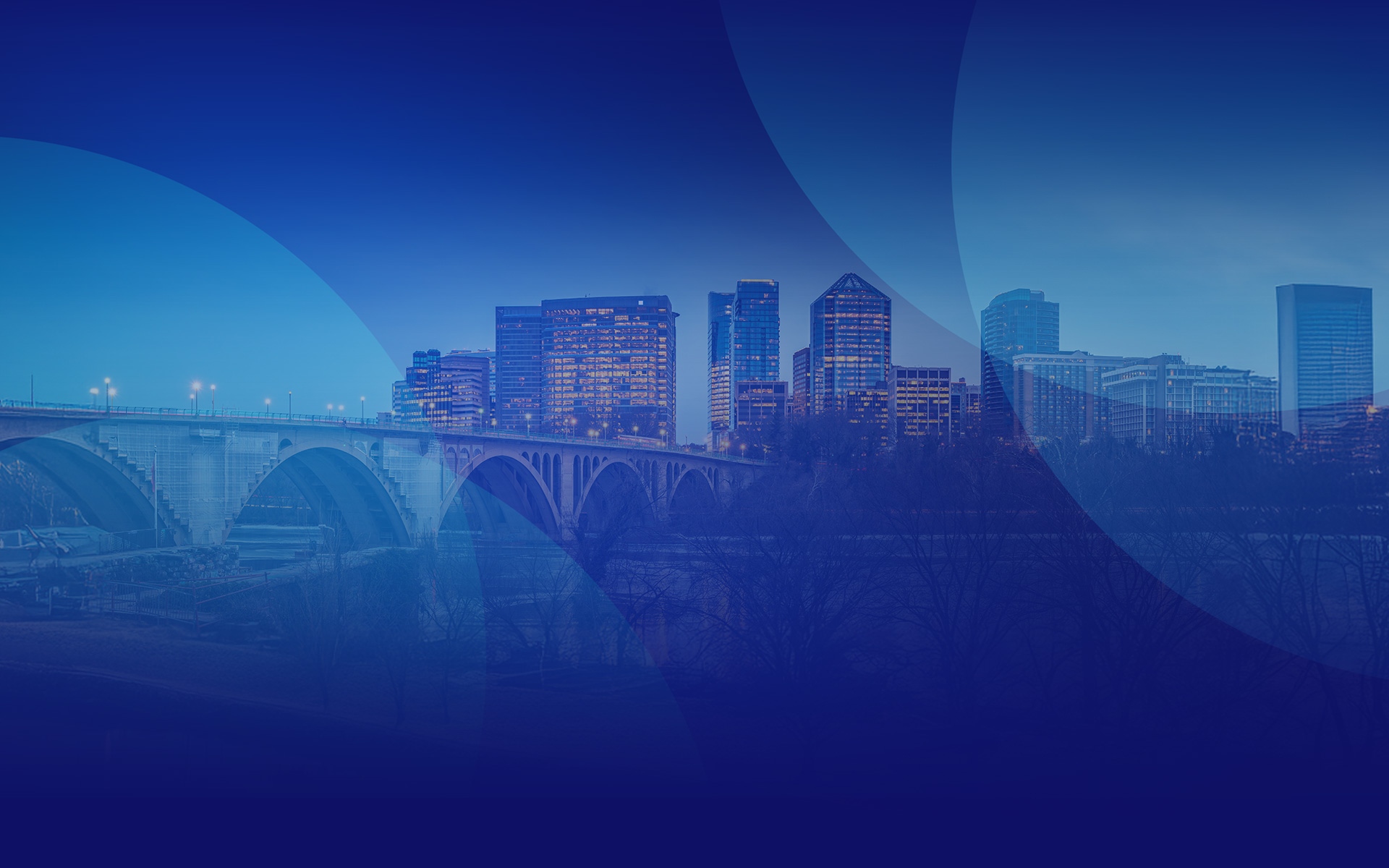Bankruptcy Attorney Washington, D.C. Services
Explore Your Debt Relief Options in Maryland and Washington, D.C.
There are many circumstances that can cause hard-working, honest individuals to experience financial difficulties. Losing a job, medical bills, or an unexpected event can quickly make your finances unmanageable. Our bankruptcy attorney at the Law Firm of Kevin D. Judd has over 25 years of legal experience and can provide the no-judgment representation you need to get your life back on track. Our bankruptcy services in Washington, D.C., are designed to eliminate or consolidate your debt, stop foreclosure, and restore your financial freedom.
In addition to assisting you through the filing process, we provide ongoing support to help rebuild your credit and educate you on financial management strategies to prevent future financial pitfalls. Our comprehensive approach aims to not only address current challenges but also equip you with the tools to achieve long-term financial stability.
Schedule a free initial consultation to learn more about whether bankruptcy may be right for you. Contact us online or call (202) 888-8454 to discuss your situation with our team.

What Do I Need to Know about Filing for Bankruptcy in Washington, D.C.?
If you are not already familiar with bankruptcy, you may understandably have several important questions. What can bankruptcy accomplish? What is the difference between Chapter 7 and Chapter 13? How would I go about filing?
Understanding the finer details of bankruptcy can be crucial for making informed decisions. It's important to consider the specific eligibility criteria and benefits of each bankruptcy type as well as understand the long-term impacts on your credit score and financial future. Our firm prioritizes educating clients on both immediate effects and future opportunities following bankruptcy, including potential impacts on credit, travel, and employment.
We encourage you to review the following resources to learn more about bankruptcy and what it can do for you:
- Understanding Bankruptcy Options. Review your relief options and commonly used bankruptcy phrases.
- Eliminate Debt with Chapter 7 Bankruptcy. Chapter 7 bankruptcy eliminates all dischargeable debt, including credit card and medical debt. Non-exempt assets will be liquidated to partially compensate creditors, but you can use available exemptions to protect most or all of your property. Some debts, including student loan debt and missed child support payments, are not dischargeable.
- Reorganize Debt with Chapter 13 Bankruptcy. This type of reorganizational bankruptcy involves setting up a payment plan based on your projected future earnings. You will pay back a portion of your debts over three to five years. This form of relief can be a great choice for people who have reliable income but have fallen behind on making payments.
- Stop Foreclosure with Bankruptcy. If you are in danger of losing your home to foreclosure, bankruptcy can be used to stop the process.
- Strategies for Managing Consumer Debt. Find out what you can do to manage your debt and how to avoid dishonest “credit repair” services.
- Navigating the Bankruptcy Means Test. Learn how the bankruptcy means test works and why you need to use it if you want to file for bankruptcy.
- Bankruptcy Solutions for Student Loan Debt. If you are facing extreme financial hardship, bankruptcy may be able to help you eliminate your student loan debt.
- Bankruptcy FAQs: Your Questions Answered. Get answers to common questions about bankruptcy laws and bankruptcy types.
Why Do Individuals & Businesses File for Bankruptcy?
Individuals and businesses file for bankruptcy for a variety of reasons. Here are some of the main reasons.
For Individuals:
- Overcoming Overwhelming Debt: Accumulation of excessive debt, such as credit card debt, medical bills, or personal loans, may become unmanageable, leading individuals to seek bankruptcy protection.
- Navigating Job Loss or Reduced Income: Sudden unemployment or a significant decrease in income can make it challenging for individuals to meet their financial obligations, prompting them to file for bankruptcy.
- Medical Expenses and Bankruptcy: High medical bills resulting from unforeseen illnesses, accidents, or ongoing healthcare treatments can lead individuals to file for bankruptcy as they struggle to cover the costs.
- Financial Strain from Divorce or Separation: The financial strain associated with divorce or separation, including legal fees, child support, and alimony, may push individuals to seek bankruptcy protection.
- Avoiding Foreclosure or Repossession: When individuals face the threat of losing their homes due to foreclosure or their assets due to repossession, filing for bankruptcy can provide temporary relief and halt the process.
For Businesses:
- Addressing Excessive Business Debt: Businesses may accrue significant debt from operational expenses, loans, leases, or unpaid invoices, making it difficult to maintain profitability and meet financial obligations.
- Adapting to Declining Sales or Market Changes: A decline in sales, changes in the market, increased competition, or disruptive industry trends can cause financial distress and lead businesses to file for bankruptcy.
- Legal or Regulatory Challenges and Bankruptcy: Businesses facing lawsuits, fines, or penalties, or struggling to comply with regulatory requirements may resort to bankruptcy as a means to address these challenges.
- Resolving Partnership Dissolution through Bankruptcy: Disputes among business partners or the dissolution of a partnership can result in financial strain, leading to bankruptcy filings to resolve outstanding debts and liabilities.
- Recovering from Natural Disasters or Catastrophic Events: Businesses affected by natural disasters, fires, or other catastrophic events may face significant property damage, loss of inventory, and interrupted operations, necessitating bankruptcy protection to recover.

Need legal solutions to overwhelming debt? Contact us at (202) 888-8454 to discuss your case and the options available. You can also schedule your consultation online.
The Comprehensive Chapter 13 Bankruptcy Process
Chapter 13 bankruptcy may be a better option if you have reliable income but cannot keep up with your financial obligations. This type of bankruptcy is often used to stop pending foreclosures and repossessions, and a Chapter 13 repayment plan gives you the opportunity to catch up on missed payments.
Chapter 13 is particularly beneficial for those wanting to protect significant assets from liquidation. By reorganizing your debt, you can address mortgage arrears, car loans, and other secured debts while potentially reducing the principal owed on unsecured debts. This approach not only allows you to manage your debts more sustainably but also offers the opportunity to improve your financial habits over time.
Like with Chapter 7 bankruptcy, you will need to bring certain documents to your first appointment with our firm. This will include proof of income, information about your debts, a copy of your last tax return, and copies of any deeds to property owned in the last three years.
During your first appointment, we will confirm you have enough disposable income to afford a Chapter 13 repayment plan. We will also set you up for your pre-bankruptcy credit counseling session.
Within one to two weeks of your original appointment, you will return to our office and sign the papers prepared for you by our attorney. In emergency situations, we can expedite this process, and you can return within one or two days to sign bankruptcy short forms. This can stop an imminent foreclosure on your home or the repossession of your vehicle.
After we file your case, you must pay all secured creditors on time. Secured creditors have liens against property you own, such as houses, vehicles, and certain types of personal property (including furniture and jewelry). In addition, you must commence plan payments to the Chapter 13 trustee one month after we submit your proposed repayment plan.
Consistent communication with creditors during this period is crucial. Our firm advises maintaining open dialogue with creditors to demonstrate your commitment to fulfilling your repayment obligations. We also assist you in managing any disputes or misunderstandings that may arise to maintain the integrity of your repayment plan.
Approximately one month after we file your bankruptcy petition, a meeting of creditors will be held. This meeting will generally last three to five minutes. The bankruptcy trustee will review your documents and verify whether you can afford to pay your regular monthly expenses in addition to your proposed plan payments.
Roughly three months after the meeting of creditors, a confirmation hearing will be held. The bankruptcy judge will review your filing, and, if you are current on plan payments, will confirm your Chapter 13 repayment plan.
After you have made all plan payments over the subscribed plan period (between three and five years), you will receive a Chapter 13 discharge, and your case will be closed. Any remaining unsecured debts will be eliminated. To obtain this discharge, you will also need to complete a qualifying personal financial management course.
Why Choose Our Bankruptcy Lawyers
Our bankruptcy services in Washington, D.C. include comprehensive assistance with each stage of the filing process. Give us a call at (202) 888-8454 or contact us online to get started.
Choosing Law Firm of Kevin D. Judd means choosing a partner in your financial journey. We pride ourselves on offering transparent, honest guidance to help you navigate your unique challenges. Our firm not only focuses on resolving present issues but also equips you with lifelong financial knowledge and skills to achieve a debt-free future. Our commitment to legal service is reflected in the success stories of the numerous clients we have assisted in reclaiming their financial autonomy.
-
Committed to the Community
-
Obtain A Fresh Start
-
Fair & Reasonable Rates
-
Over 25 Years of Service


Our goal is to help you find the relief you need from overwhelming debt. Reach out to us today for a free case evaluation.

